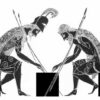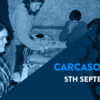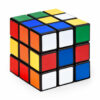The Mind Sports Olympiad Computer Programming Competition strives to nurture new generations of global talent in the science and art of information technology. The Computer Programming Competition is be run by MSO founder David Levy. In 1997, Levy led the team that won the prestigious artificial intelligence Loebner Prize for the program called “CONVERSE”. The prize competition rewards the program that is best able to simulate human communication. Levy entered the contest again in 2009, and won. Since 1999, he has been the president of the International Computer Games Association. He was Chairman of the Rules and Arbitration Committee for the Kasparov vs Deep Junior chess match in New York in 2003. Levy has written more than 40 books on chess and computers.
This event is open to all, and in addition to the regular gold, silver and bronze medals, a junior gold medal will be given to the top contestant under 18.
The rules for the Computer Programming Competition are as follows:
Each contestant will be responsible for bringing their own computer, and is free to use whatever programming language and environment that they wish (e.g. C++, Python, Pascal, etc…) Participants will not be allowed to access the Internet during the competition.
There will be four tasks and a maximum total time allowable of 4 hours. When a contestant completes all of the tasks (or decides to stop) they raise their number (on an A4 sheet). The order of finishing determines the winner if two or more contestants have successfully completed the same number of tasks.
The fastest and most-correct contestant is the winner. Contestants score 100 points for every task successfully completed, by lose 1 point for every place in the finishing order they come below the winner.
The tasks will be described in Simple English and no specialist knowledge will be required of the contestants.
For tasks which involve test data, each participant will be given a set of test data via a USB stick. The data will be in a regular text file.
The tasks are aimed at developing algorithms to solve data-drive questions (rather than creating a graphical interface). Also, while there will be no access to the internet during the competition, contestants can use any code and help files that they have stored locally on their computer.




